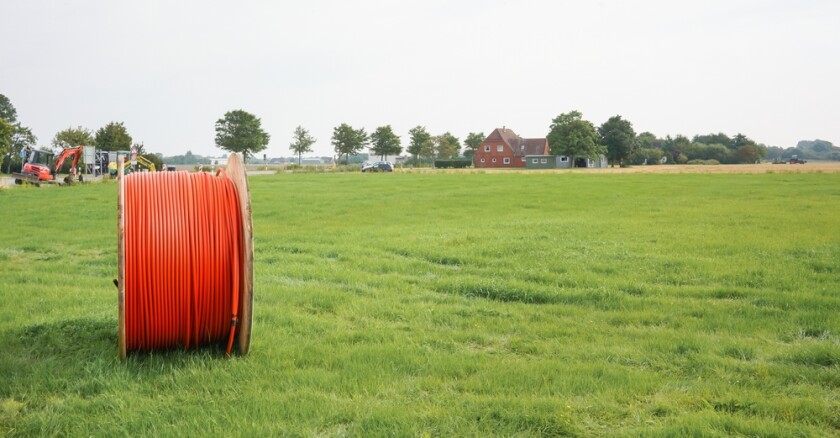But Internet companies are not going after the federal grants because of the regulations that would be attached to them, including providing low-cost services to low-income households.
Barbara Droher Kline, a consultant working with Le Sueur County to expand its rural broadband, said she spent three days at a seminar recently just learning about the regulatory requirements.
"It's very strict," she said.
One problem is that there would be a 20-year federal lien on the fiber put in the ground using the grants. That's something Internet companies and those who would help finance projects aren't willing to accept.
Earlier this year, Le Sueur County received a $1 million grant from the U.S. Department of Agriculture to expand rural broadband. The money was earmarked by U.S. Rep. Angie Craig and Minnesota U.S. Sens. Amy Klobuchar and Tina Smith.
With about two-thirds of Le Sueur County lacking high-speed Internet access, the grant seemed like a big boost.
Kline said the county is hoping to be able to use the $1 million grant, but the regulatory and other roadblocks are making it more difficult.
The county is waiting to hear from the state to see if Bevcomm, a Blue Earth-based Internet provider, will get the approvals it needs to complete a project in the county. There is also another potential project in the pipeline that would connect more residents in Ottawa to high-speed fiber.
She said another problem is that a recent map created to show what parts of the state are eligible for a share of federal/state funding is not accurate. Kline said there was "overreporting" of how much wire/fiber was in the ground in many parts of the state.
"It shows most of southern and western Minnesota is not eligible for the money because of overreporting."
Kline said they have been working with the state to adjust the map to make it more accurate and state officials have been open to changes.
She said Minnesota has been "dragging its feet for good reason" on rolling out more grants until it knows more about all of the regulations and other issues tied to the federal funding.
A new study found that Minnesota was among the worst in the country for broadband growth in recent years.
The HostingAdvice study shows that Minnesota has gained just 5% in the number of homes with broadband in the last four years, equal to 170,635 households.
That ranked Minnesota 32 among all states.
The top states for broadband growth were Arkansas (9%), Alabama (8%), Kentucky (8%), Louisiana (8%) and Mississippi (8%).
The lowest ranking states were in the 3-4% range for broadband growth.
"Broadband connectivity is not just a luxury, it's a necessity for modern living," Christina Lewis of HostingAdvice said in a press release.
"Our study highlights the progress being made in various states and counties, but it also underscores the ongoing need for investment in digital infrastructure to ensure all communities can thrive in our increasingly connected world."
The study noted broadband access is more important than ever for communities and the economy. It influences everything from education and health care to job opportunities and social connections.
©2024 The Free Press, Distributed by Tribune Content Agency, LLC.








